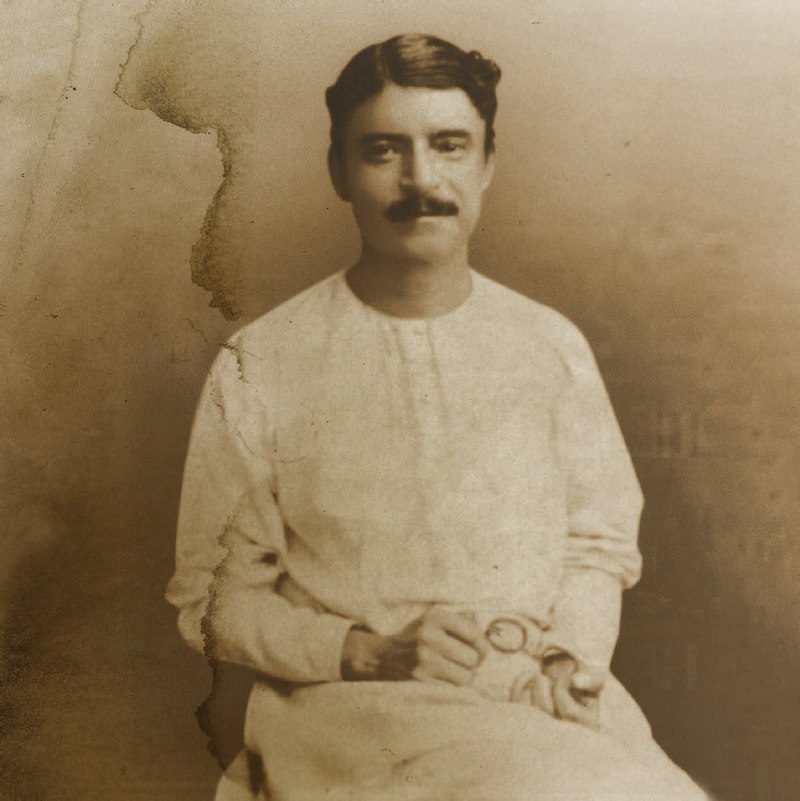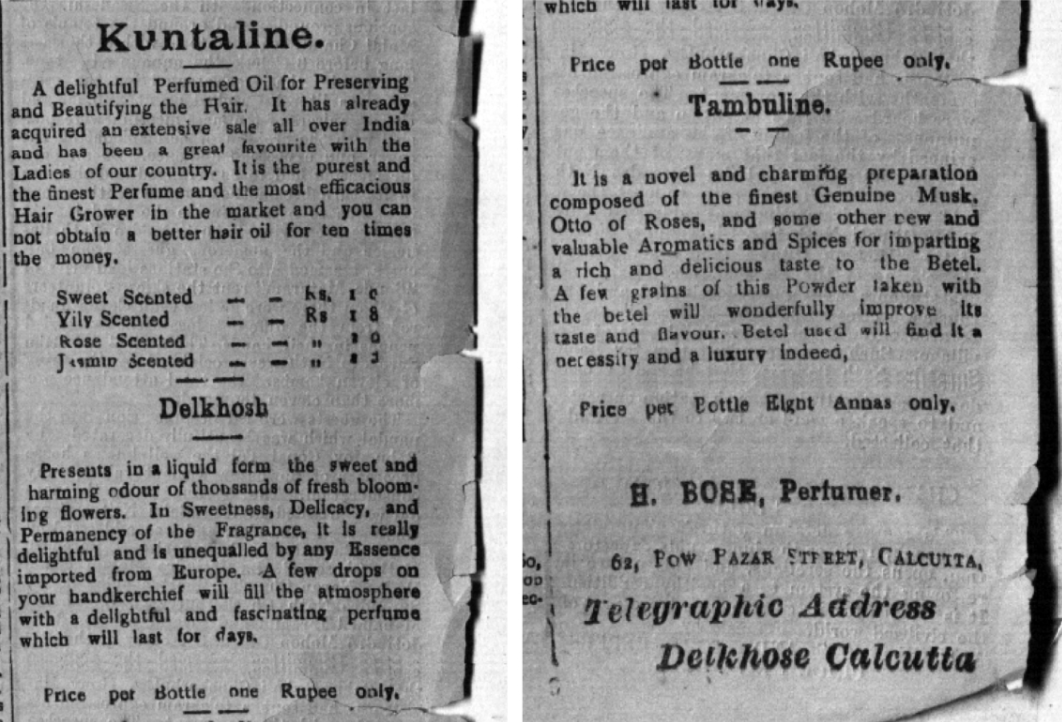The Unsung Swadeshi Entrepreneur Whose Record Discs Helped Defeat the British Raj
From India’s first gramophone to Bengal’s favourite perfume, Hemendra Mohan Bose created trailblazing swadeshi products at a time when British goods were flooding the Indian market. Interestingly, his uncle was the legendary scientist JC Bose! #LostTales #history #ForgottenHeroes

In the early 1900s, amid the ongoing socio-political turmoil in Bengal, one man silently revolutionised the concept of entrepreneurship. This was way before Mahatma Gandhi’s Swadeshi movement called for an umbrella boycott on all British goods.
Using his ingenious brilliance and business prowess, Hemendra Mohan Bose launched a diverse range of indigenous products—ranging from India’s first gramophone and bicycle to Bengal’s favourite hair oil and perfume.
Play your music the eco-friendly way. Opt for this zero-electricity bamboo speaker
Branded under ‘H Bose,’ these products came to adorn the shelves, dressers, living rooms and even garages of middle-class households in pre-Independence times.
Birth and early life
Born in 1866 in Mymensingh of undivided Bengal, Hemendra hailed from a family of accomplished dignitaries. His grandfather, Ananda Mohan Bose was the first Indian wrangler as well as one of the founders of the Brahmo Samaj.
His father Hara Mohan Bose was a High Court munsiff while his uncles were established lawyers and doctors. In fact, famous scientist JC Bose was his maternal uncle.
Hemendra was an exemplary student throughout high school and took admission in Calcutta Medical College upon JC Bose’s encouragement. However, tragedy struck within a few months. While he was performing an experiment, an acidic chemical fell on his eyes due to a momentary inattention.
Five months of critical surgeries and treatment later, he regained his eyesight, but he was adjudged unfit to pursue medical studies.

Not one to lose heart, he decided to put his business acumen to use. In 1894, he started a perfume manufacturing unit in the attic of his house and named it H-Bose Perfumers. His signature fragrance—Delkhosh—became widely popular and found admirers among the whos who of Bengal at that time.
He later branched into hair oils, soaps and toiletries like Eau-de-cologne, lavender water, rose water as well.
Kuntaline – The indispensable Bong hair oil
Among these items, it is a hair oil named ‘Kuntaline’ that skyrocketed to success and became synonymous with Bengali lifestyle at that time.
Rabindranath Tagore himself was a huge admirer, and wrote several limericks and jingles for its advertisement without charging a single penny!
Here is one famous example:
“Keshe Makho Kuntaline,
Rumalete Delkhosh
Paane Khao Tambuleen
Dhanyo Hok H Bose”
(Oil your hair with Kuntaline,
In your kerchief, pour Delkhosh
Your paan must have Tambuleen,
All blessings be to H Bose)
H-Bose Perfumers also presented Bengal with syrups, additives to enhance their homely dishes and herbal medicines to treat their ailments.
In 1900, Hemendra started a printing press and christened it ‘Kuntaline Press’ to cater to the extensive base of Kuntaline admirers. He even launched the famous ‘Kuntaline Purashkar’ in literature conferred annually to the best literary work of the year.
An essential criteria for participants was to include Kuntaline and other H-Bose products into the literary piece without making it appear like an advertisement. His unique idea was perhaps the first instance of affiliate marketing in India, and none other than JC Bose cinched the first instalment of the award.

His footsteps into the automobile sector began with him opening the H Bose Cycle Company, and its success prompted him to open a magnificent car showroom in Free School Street, Kolkata termed ‘The Great Eastern Motor Works.’
The showroom displayed and sold the latest international car models, and while European noblemen formed the crux of his customer base, Bengal’s aristocracy was not far behind.
Unfortunately, his flourishing car business met with a dead-end with the advent of the First World War and the drastically affected economy where basic necessities became exorbitantly expensive.
Bringing the gramophone to India
Hemendra’s most significant business achievement has to be in the domain of sound and music.
Around 1900, he imported Edison’s phonograph to India to add to his esteemed private collection and started recording songs and voices of eminent personalities in his leisure time.
His cherished collection would have proven to be the most magnificent audio archive of pre-independent Bengal’s history, had most of his records and equipment not been seized by the British police during a citywide sedition haul. The remaining ones were also later destroyed during the plague epidemic in Kolkata for fear of contamination.
Under the name ‘H Bose Swadeshi Records’, the spirited innovator-entrepreneur manufactured and marketed the gramophone for the first time in India. He also collaborated with French film tycoon and businessman Charles Pathé to convert the existing cylinder records into disc records— thereby launching the Pathephone.
The charm of sound had captivated Hemendra as much as the magic of light as he happened to be the pioneer of colour photography in India. In those days, he was perhaps the only Indian in the country to use Autochrome Lumière slides for photography. Many of his photographs have attained iconic popularity.
Hemendra managed to leave bits and pieces of his trademark influence, in every aspect of life. Fascinated with the British practice of having tea as an afternoon beverage, he adopted the custom and went on to own an entire tea garden in Darjeeling.
He passed away in 1916, after a prolonged period of harrowing pain from a flawed dental surgery. He was fifty-two years old at the time of his death.
Hemendra Mohan Bose is not a recurring name in the pages of history, but his numerous entrepreneurial ventures reigned in the daily lifestyle of Indians for a long, long time. Today, he is remembered today as a trailblazing entrepreneur as well as a pioneer of the Swadeshi movement through domestic products.
Also Read: How India’s Tricolour & National Emblem Took Shape Just Days Before Independence!
(Edited by Gayatri Mishra)
Like this story? Or have something to share?
Write to us: [email protected]
Connect with us on Facebook and Twitter.
If you found our stories insightful, informative, or even just enjoyable, we invite you to consider making a voluntary payment to support the work we do at The Better India. Your contribution helps us continue producing quality content that educates, inspires, and drives positive change.
Choose one of the payment options below for your contribution-
By paying for the stories you value, you directly contribute to sustaining our efforts focused on making a difference in the world. Together, let’s ensure that impactful stories continue to be told and shared, enriching lives and communities alike.
Thank you for your support. Here are some frequently asked questions you might find helpful to know why you are contributing?


This story made me
-
97
-
121
-
89
-
167











